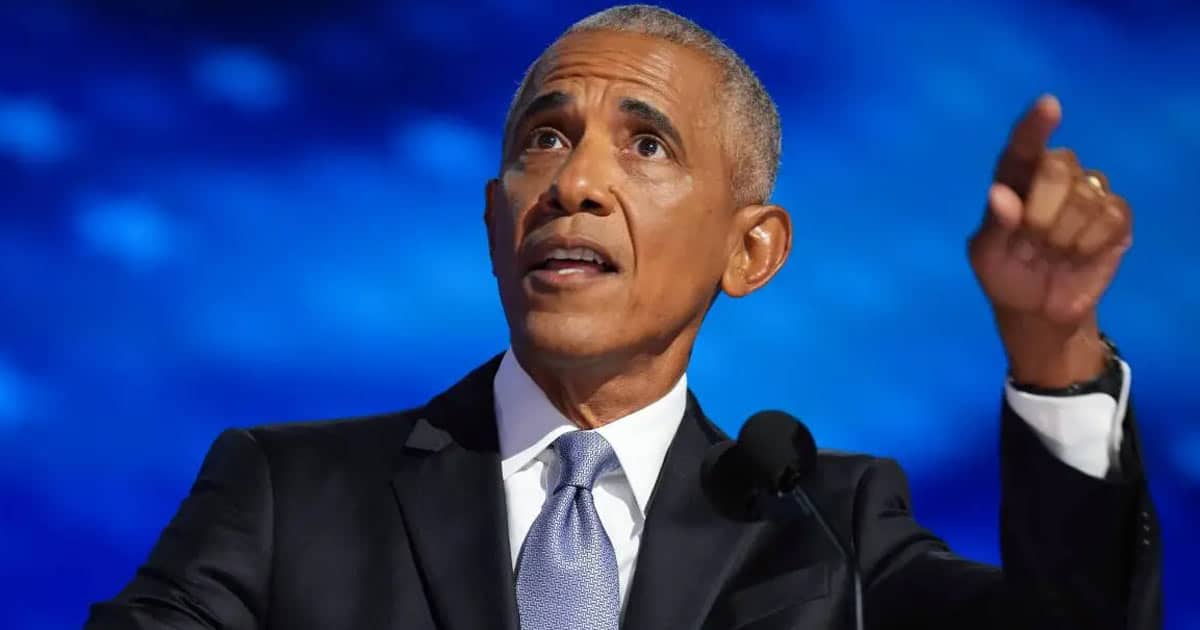In a revealing appearance at The Connecticut Forum, former President Barack Obama called for government regulation of social media platforms to police what he deems “misinformation.”
The remarks are raising alarm bells for critics who see it as yet another move to stifle dissent and silence political opposition.
During his speech titled “An Evening with President Barack Obama,” the former president lamented the erosion of public trust.
However, instead of blaming failed leadership or political corruption, Obama pinned it squarely on Americans’ ability to share unfiltered opinions online.
“You and I can have an opinion about a side table,” Obama said.
“But if I say this is a lawnmower, you’ll think I’m crazy.
“We’re now in a situation in which we are having these basic factual arguments.
“And that further undermines trust.”
Obama then invoked Russian President Vladimir Putin, quoting a KGB propaganda tactic about overwhelming the public with so much disinformation that people no longer believe anything.
He linked the concept to former Trump adviser Steve Bannon, in what some observers viewed as yet another swipe at the MAGA movement.
Then came the punchline: government intervention.
“It will require some government, I believe, some government regulatory constraints around some of these business models,” Obama said.
He continued by arguing that platforms should stop elevating what he calls “the most hateful or polarizing voices.”
Critics say this is code for censorship, plain and simple.
“We want diversity of opinion,” Obama claimed, “but we don’t want diversity of facts.”
WATCH:
Yet “fact-checkers” and researchers are already poking holes in his claims.
A 2024 Knight Foundation study titled “From Trust to Disagreement” undermines Obama’s central thesis, concluding that misinformation receives lower trust ratings than accurate information.
In other words, people can tell the difference.
The real culprit, according to the study, is deep-rooted political polarization, not rogue Facebook posts.
A more recent March 2025 study titled “Trust in Disinformation Narratives” found that ideology, topic, and tone, not the truthfulness of content, had the greatest impact on public trust.
The study also revealed that authorship had little effect, indicating that people don’t blindly trust outlets just because of a name-brand byline.
Obama’s renewed call to regulate speech online may have less to do with “truth” and more to do with controlling the narrative.
His remarks come amid growing concerns among Americans about Big Tech censorship, biased so-called “fact-checkers,” and efforts by government agencies to suppress politically inconvenient stories, from Covid origins to Hunter Biden’s laptop.
So when Barack Obama says, “We don’t want diversity of facts,” many Americans are left asking:
Who gets to decide what counts as a fact?
READ MORE – New York Times Reporter Warns: Obama Isn’t Coming to Save Democrats

Our comment section is restricted to members of the Slay News community only.
To join, create a free account HERE.
If you are already a member, log in HERE.